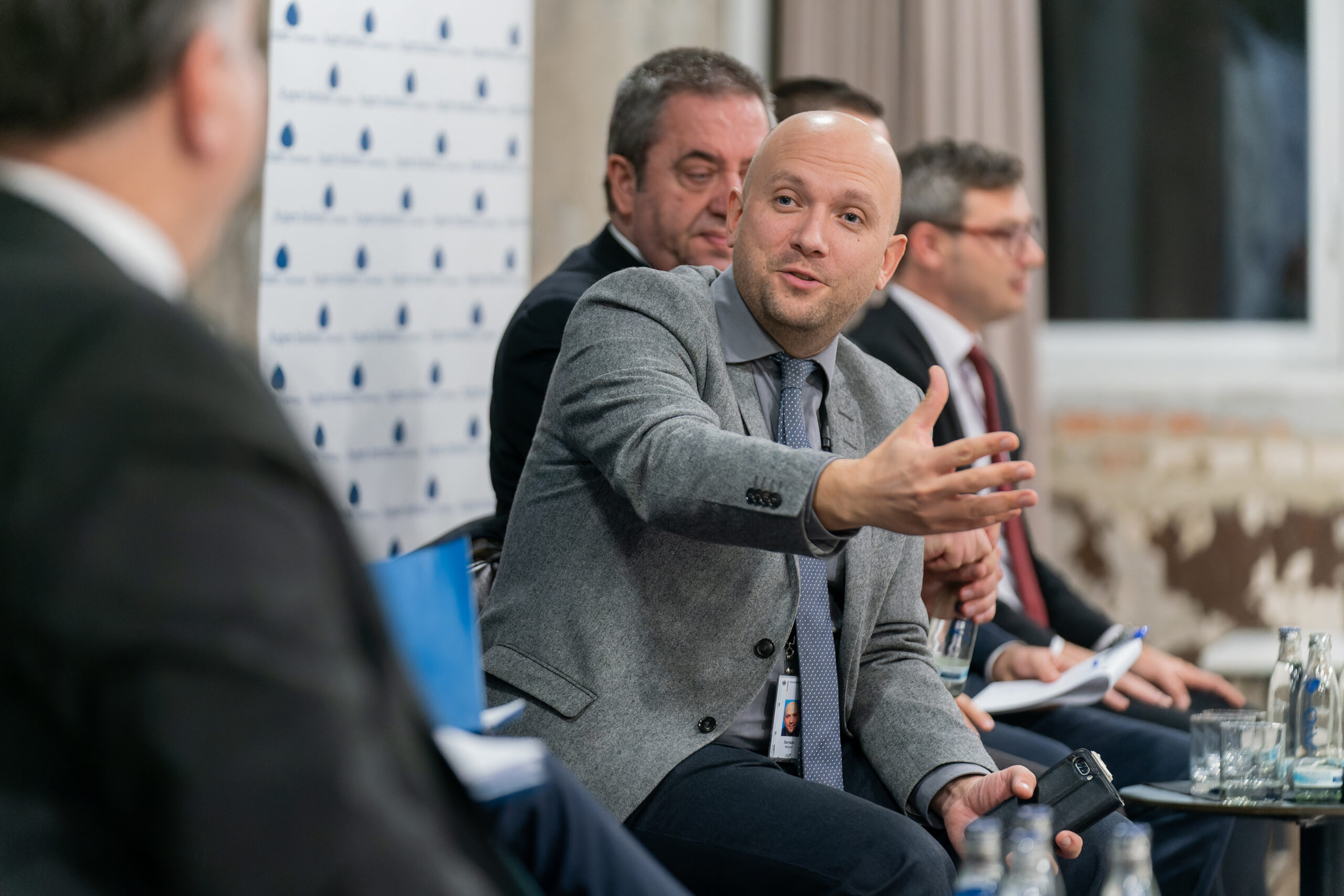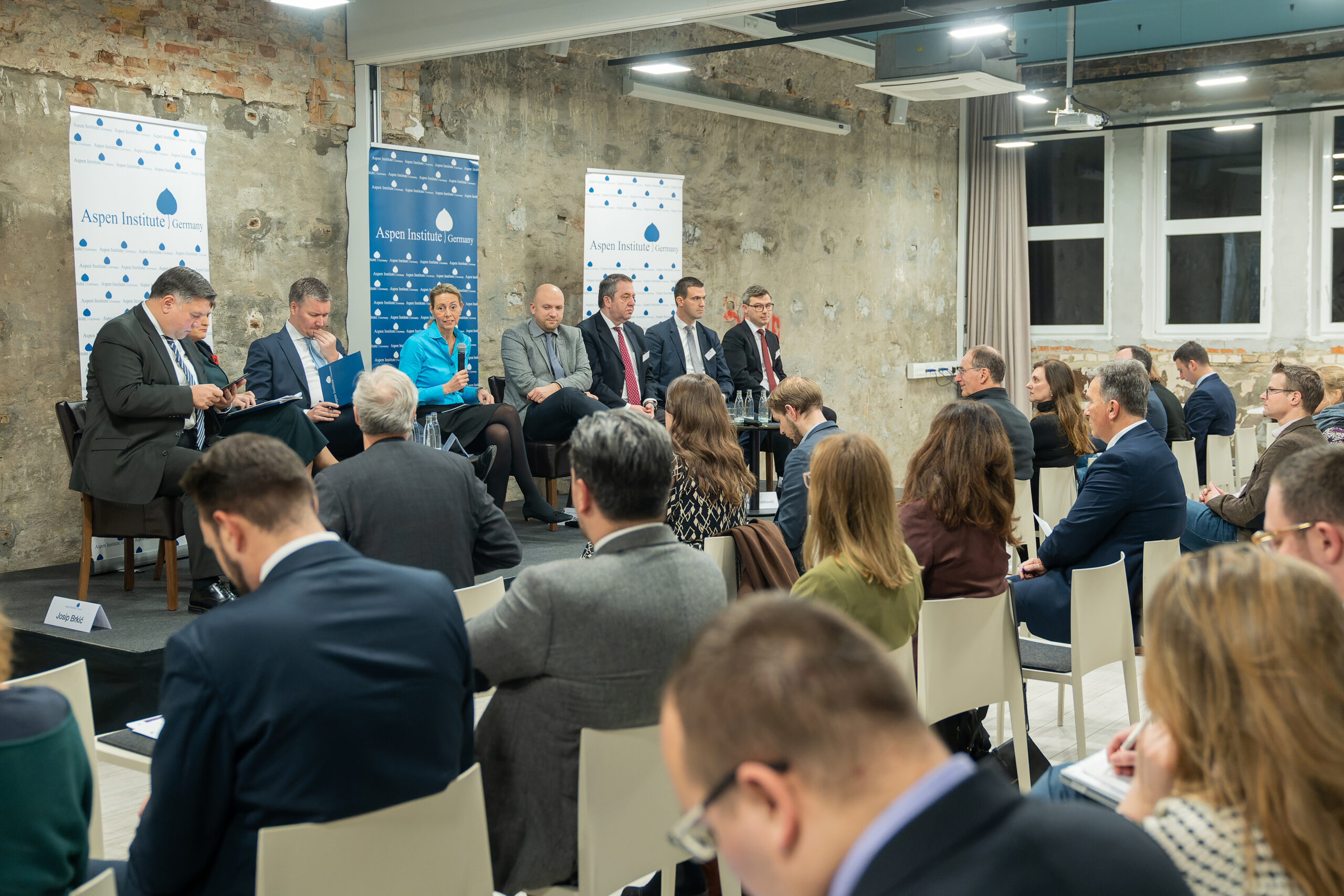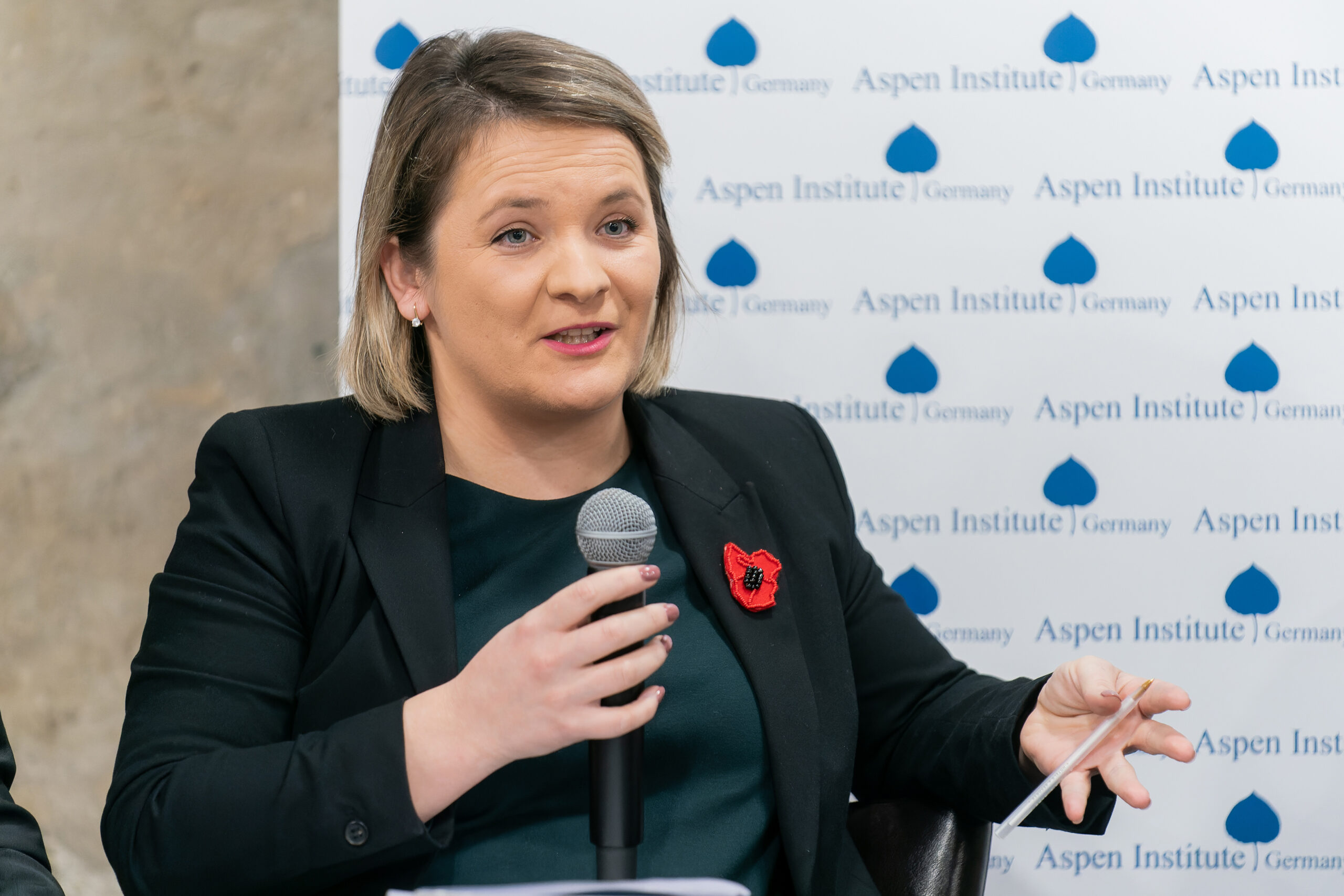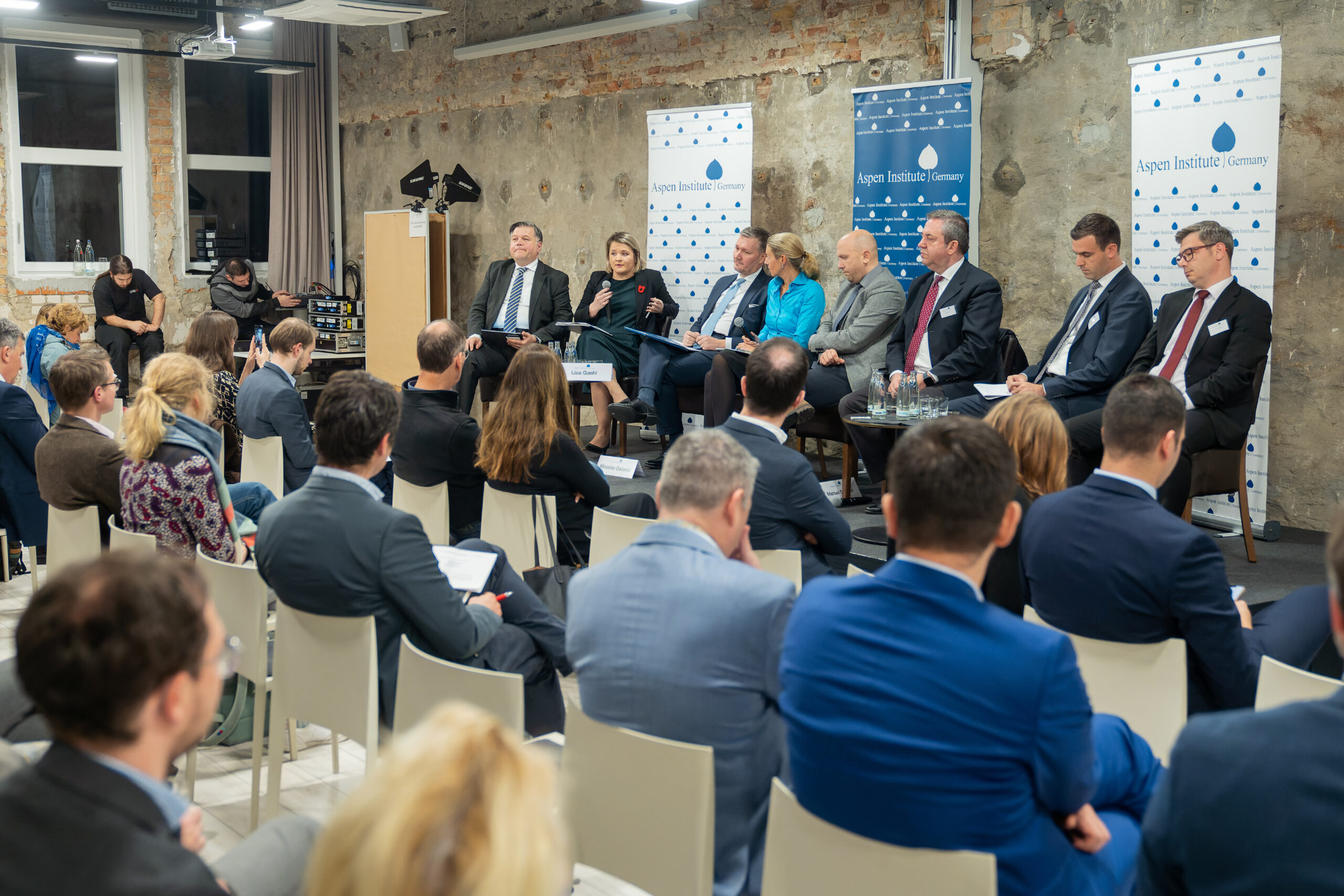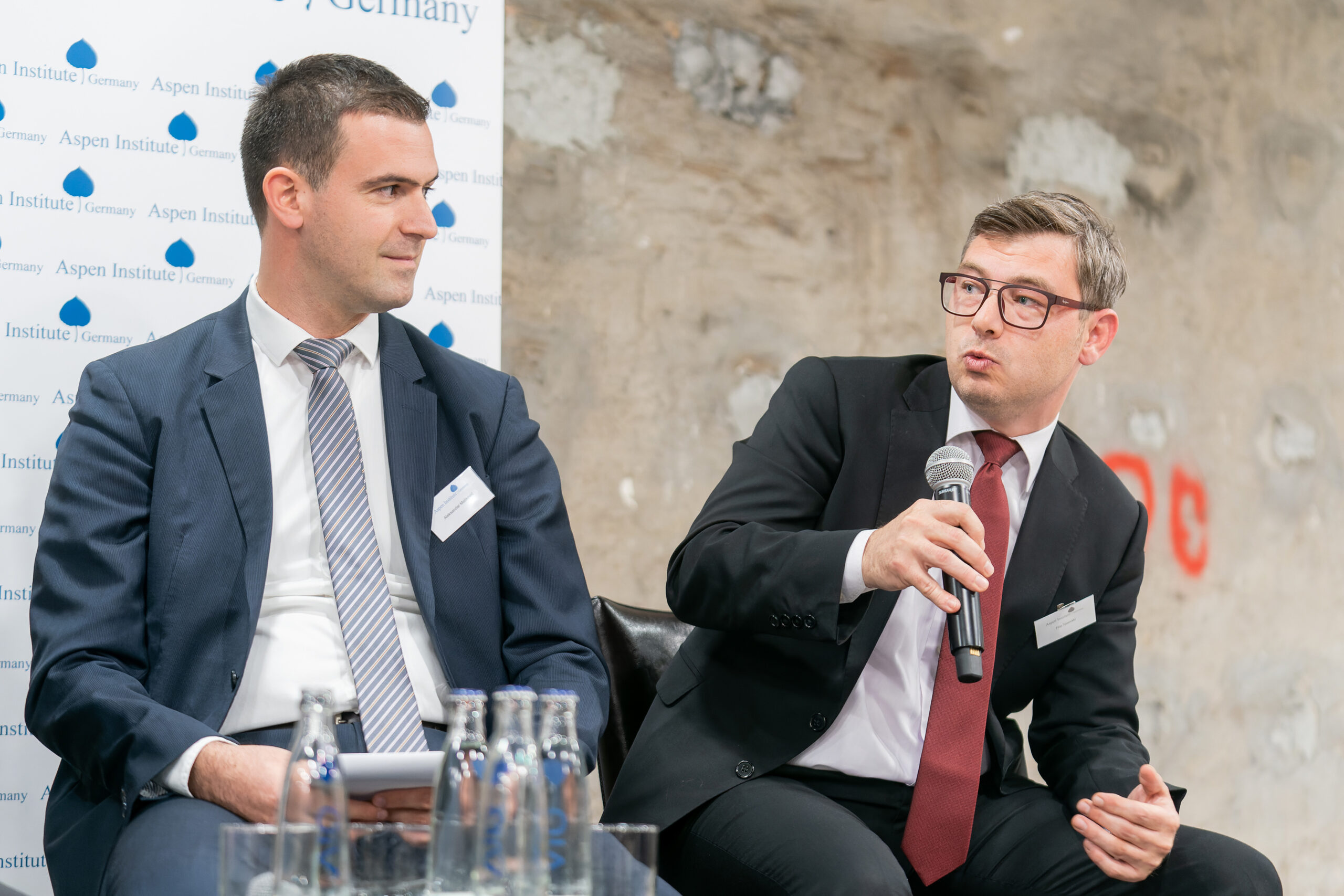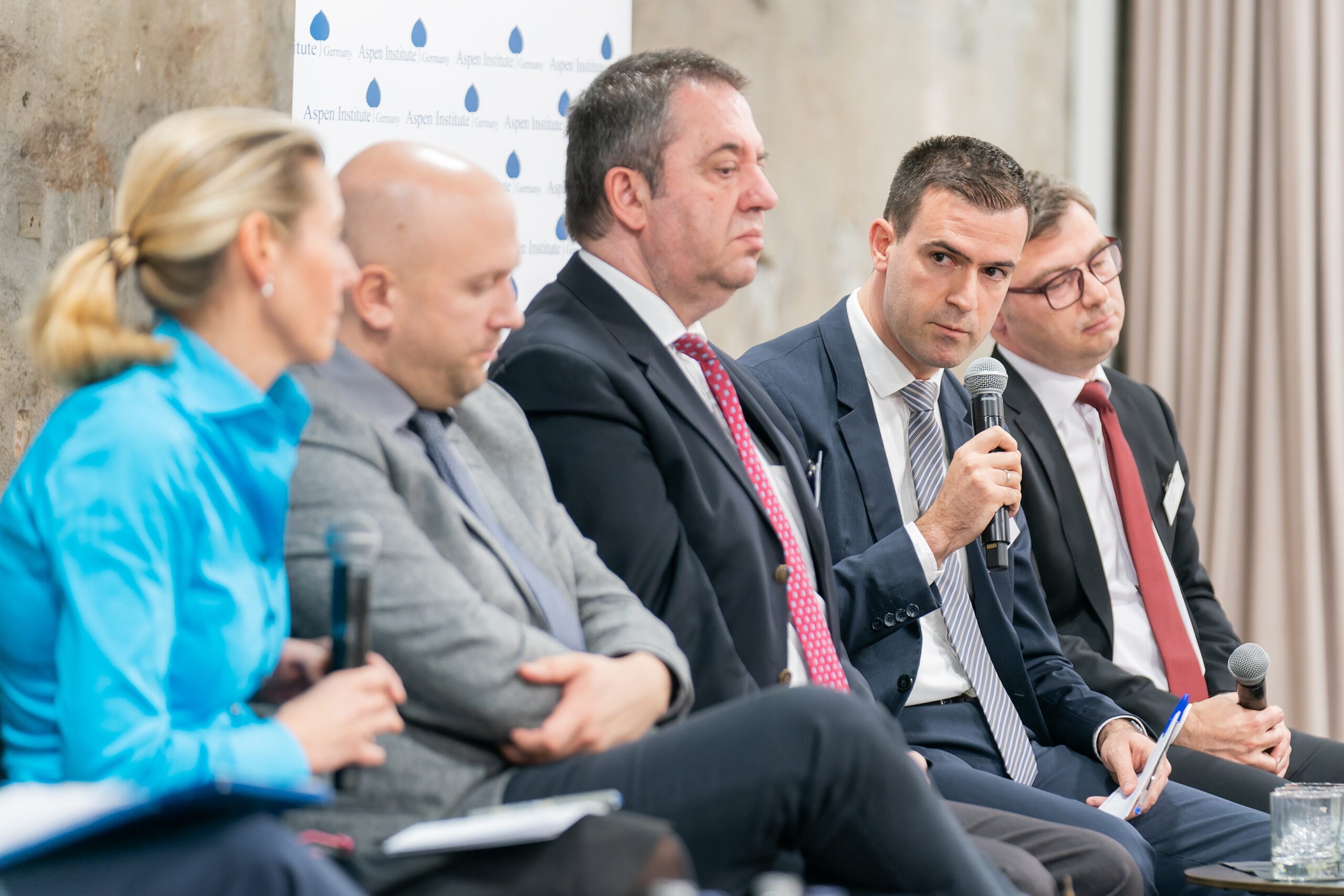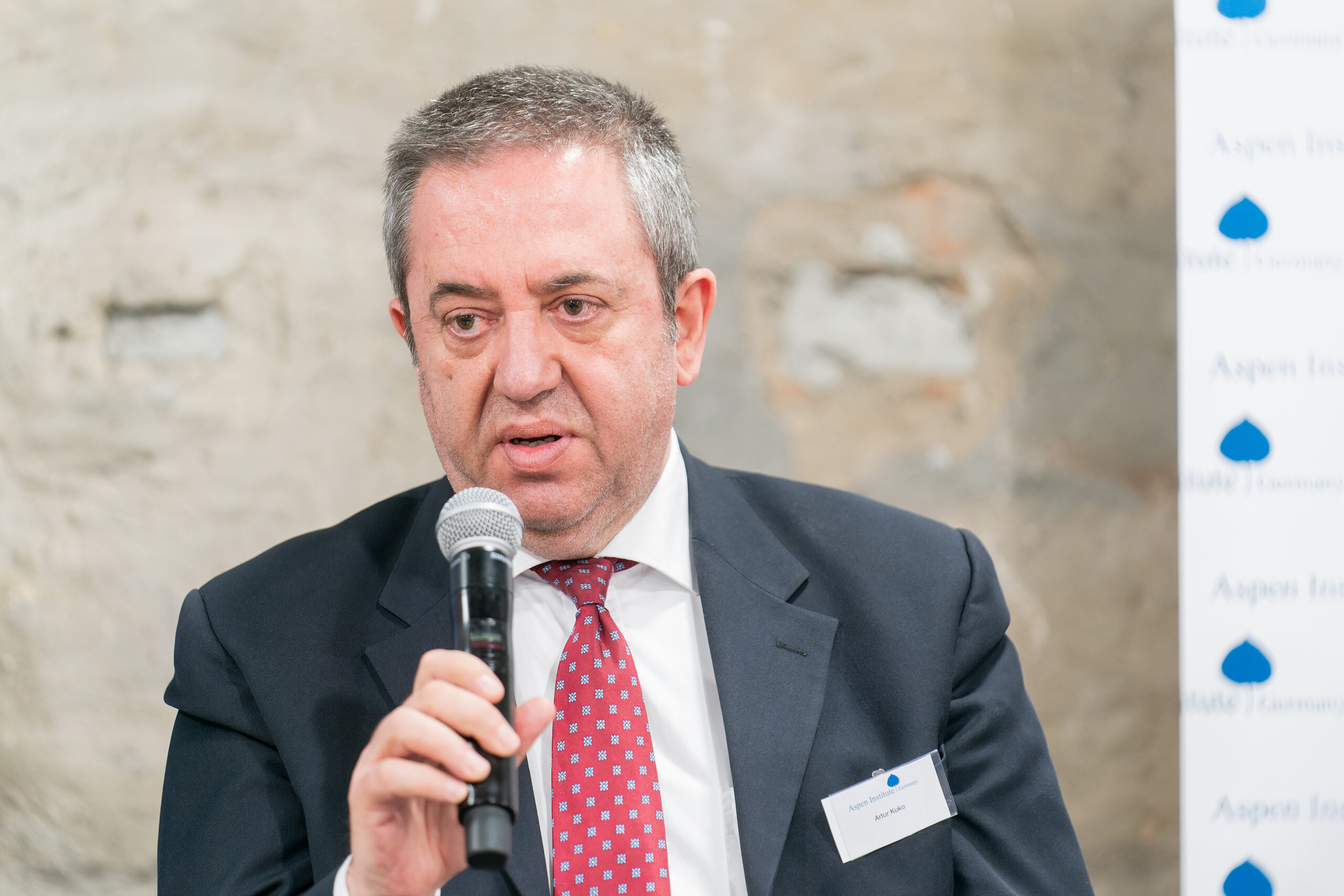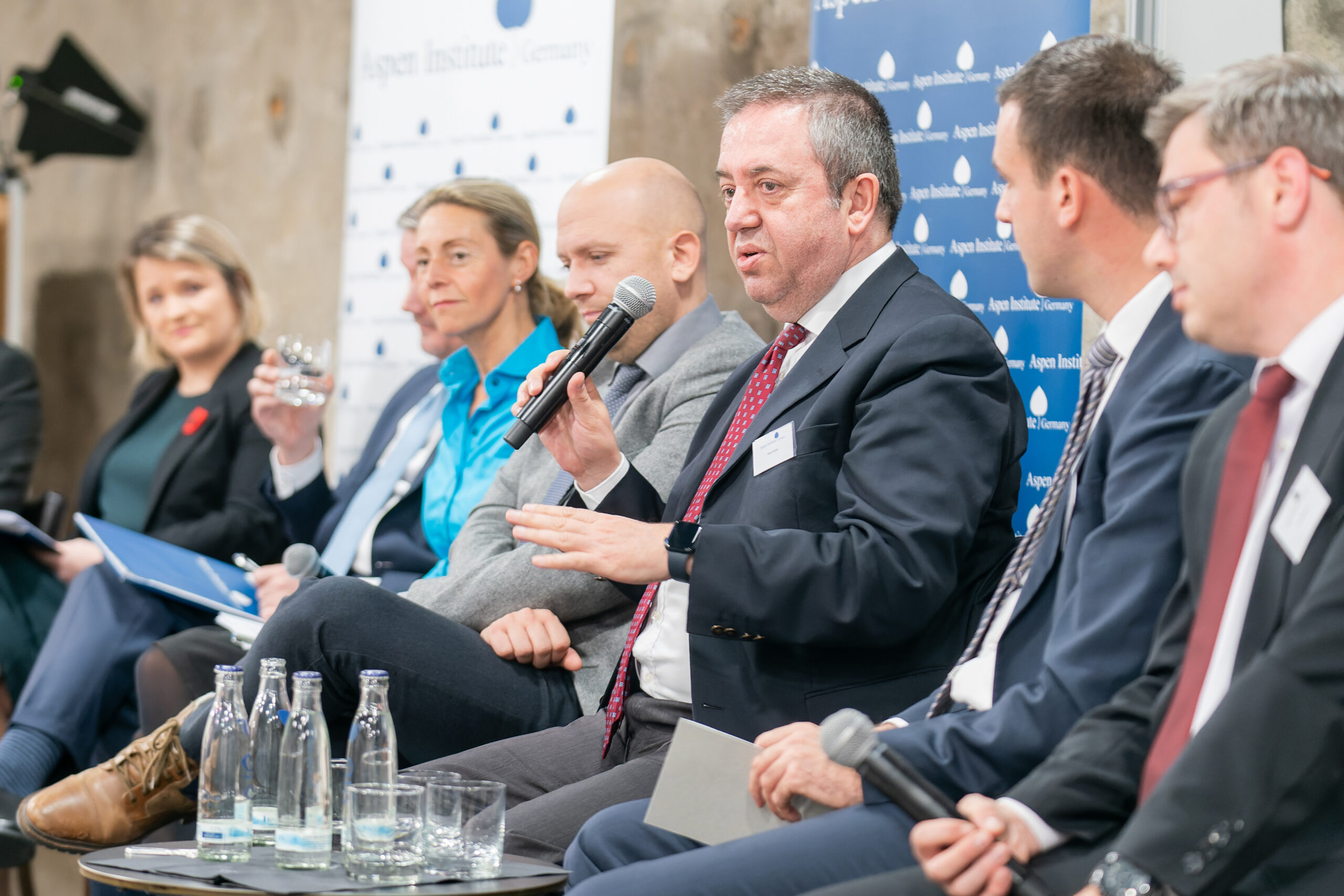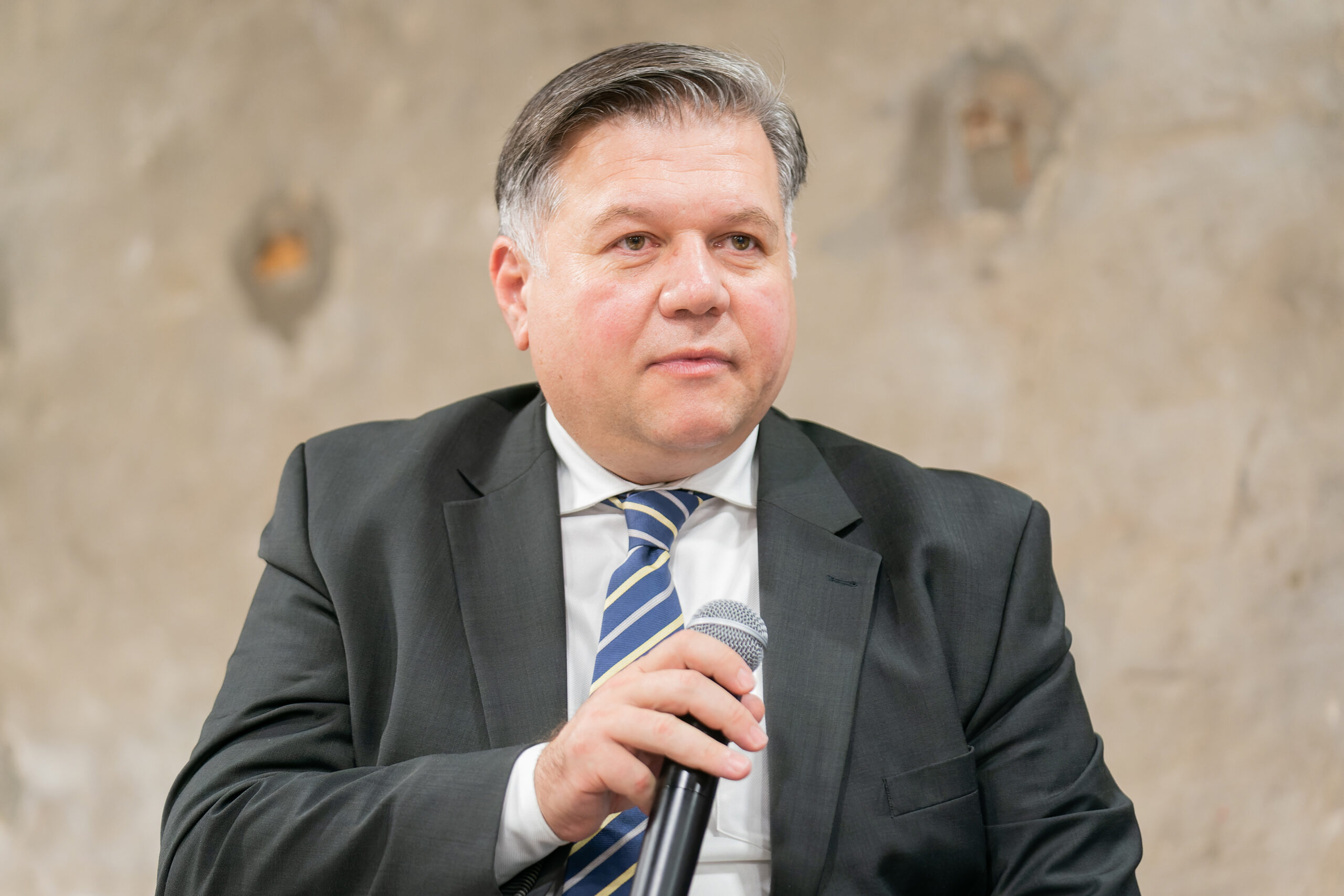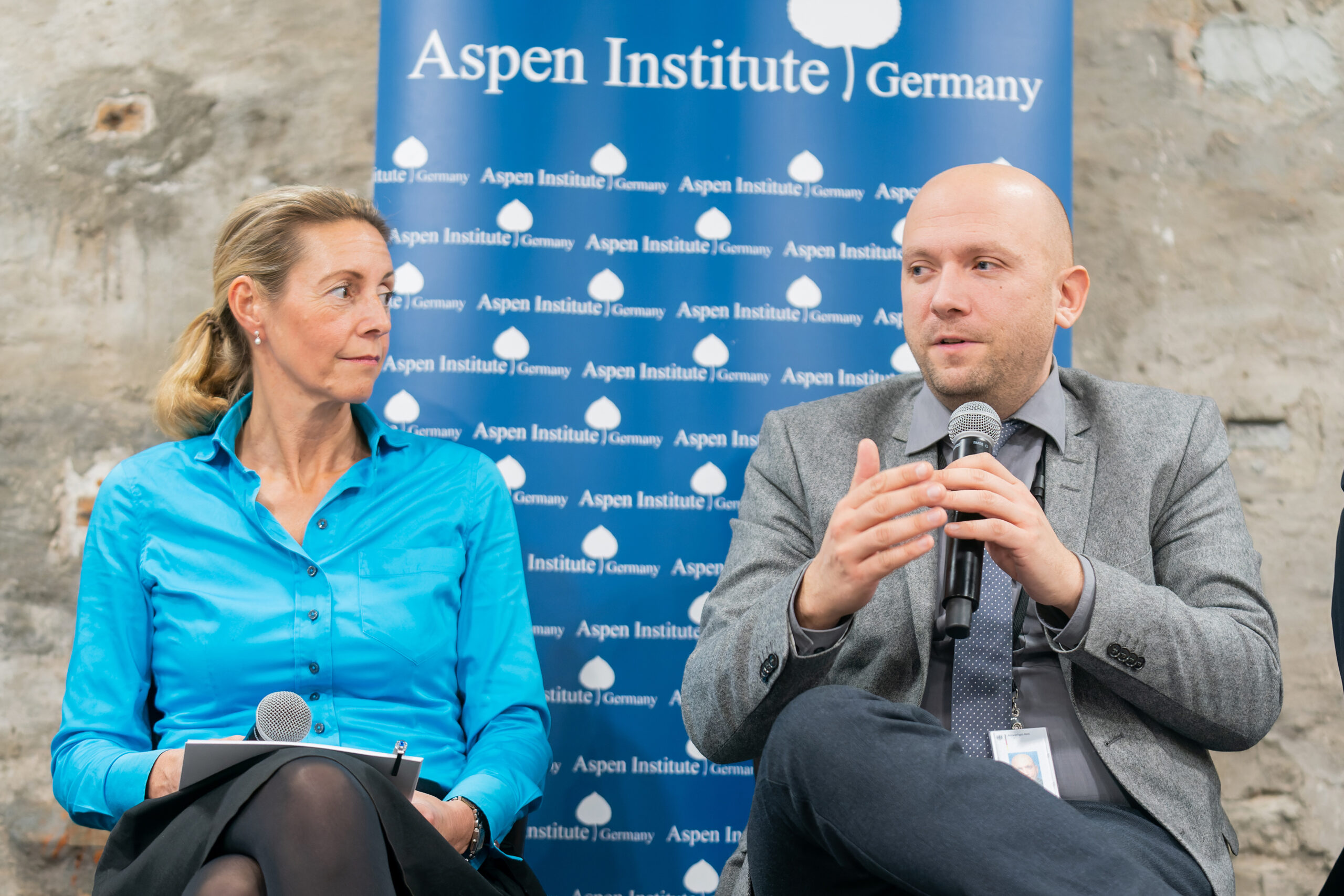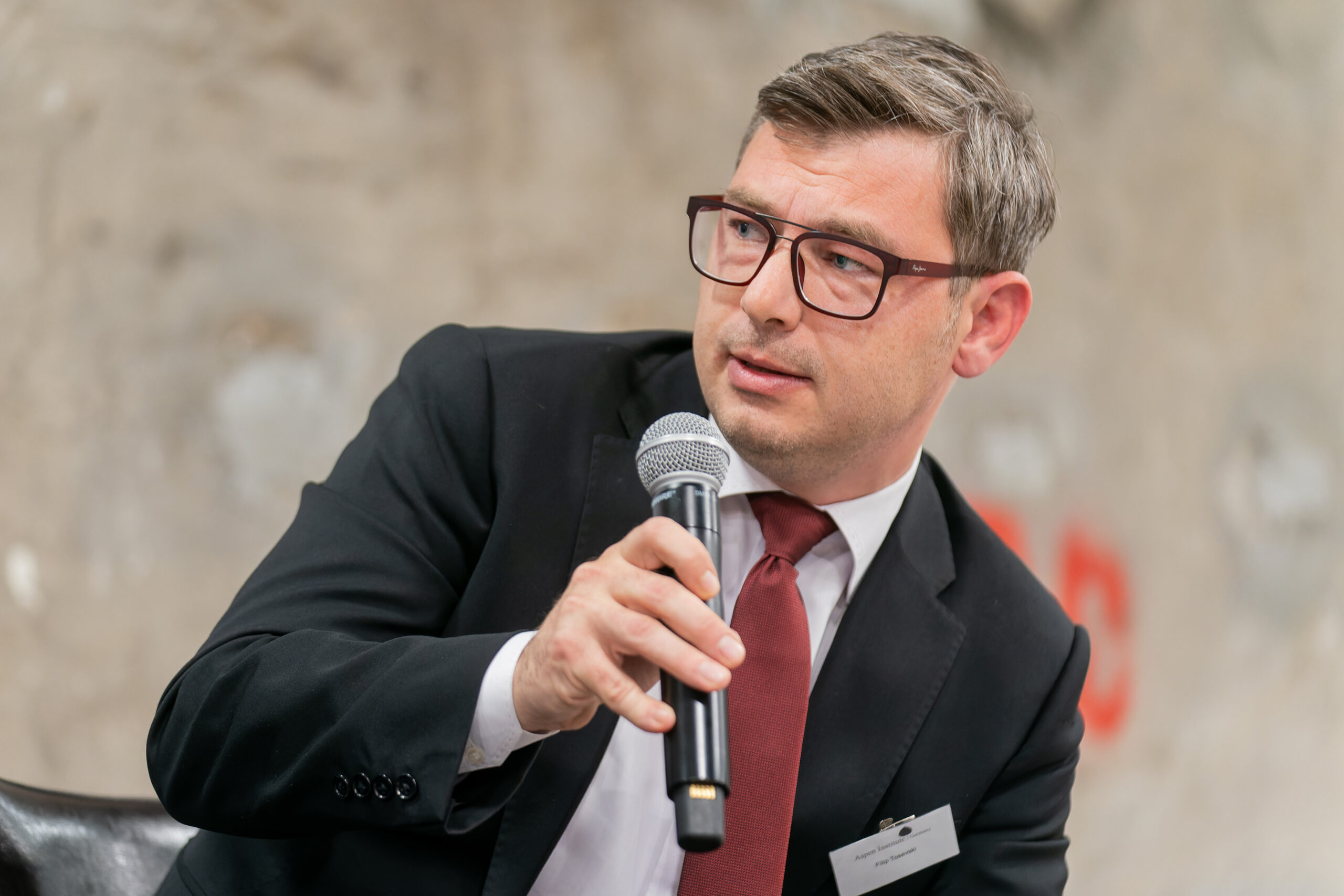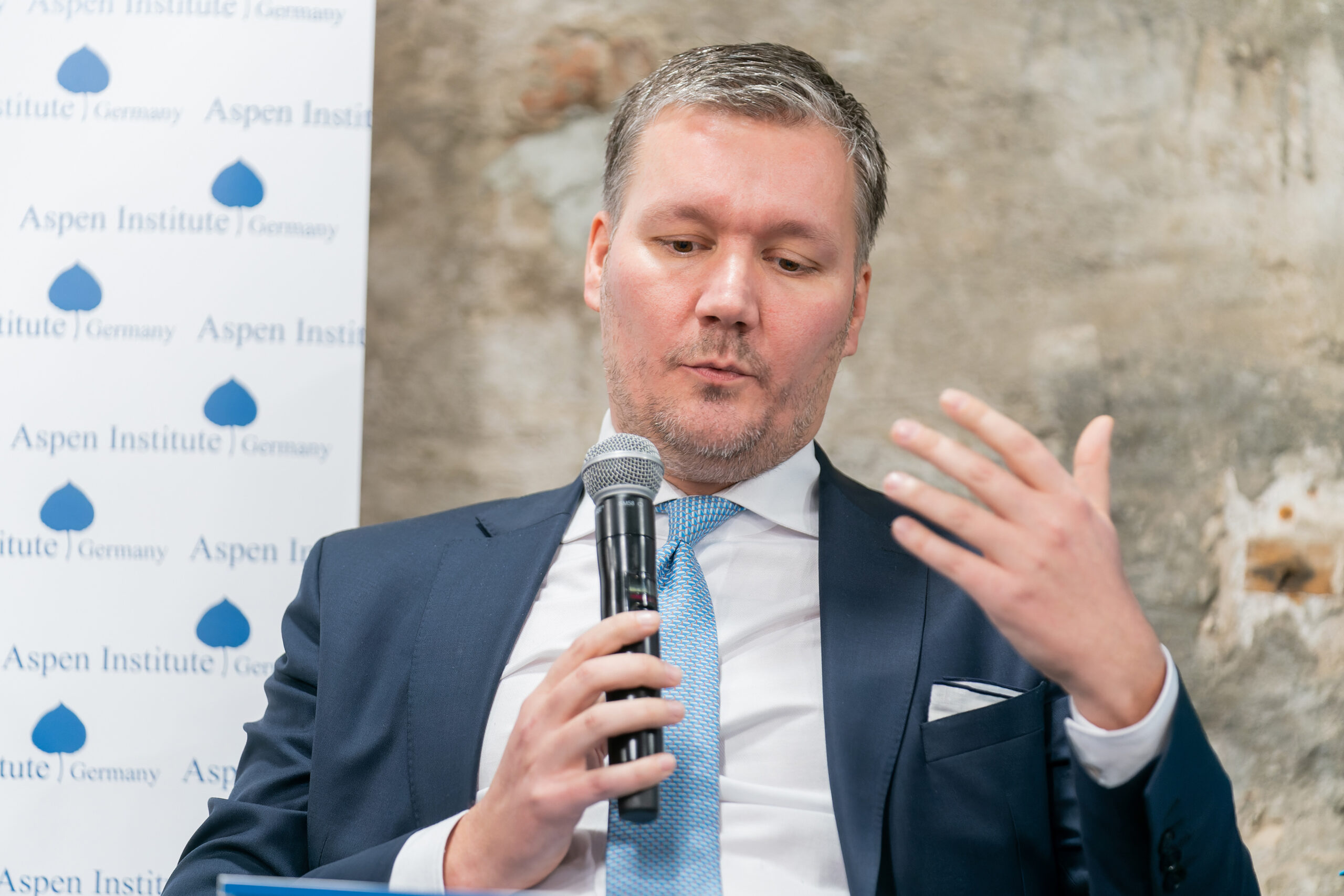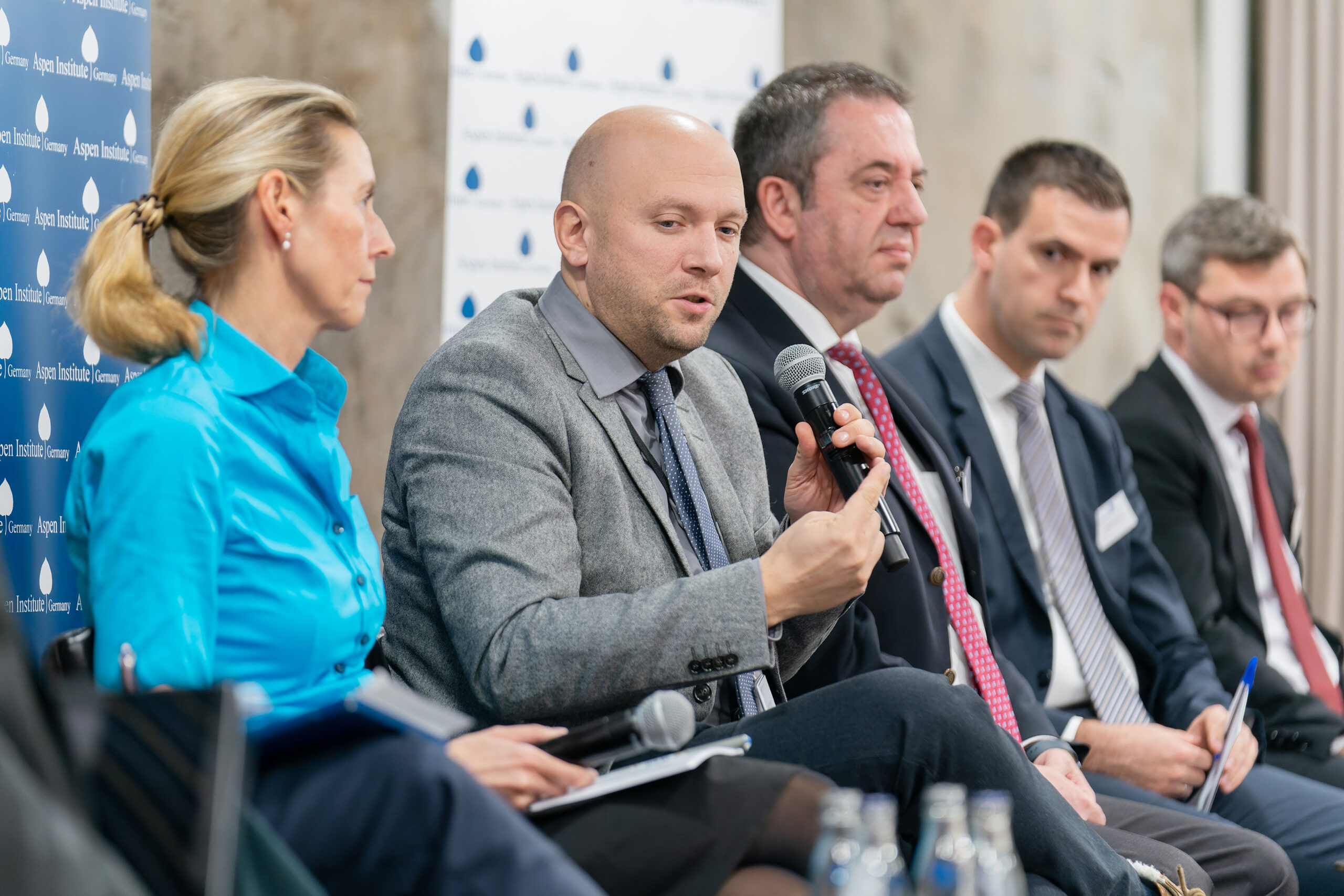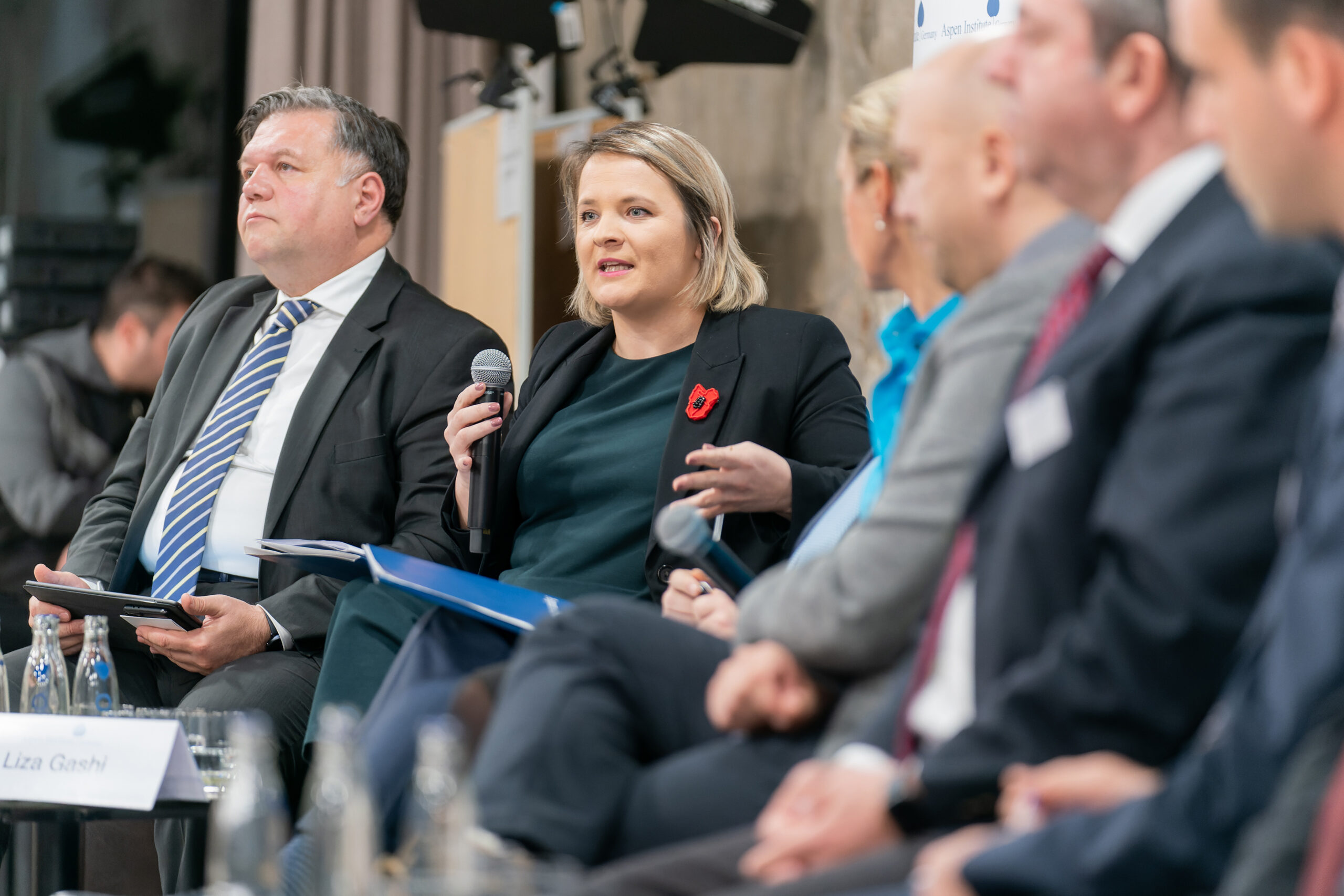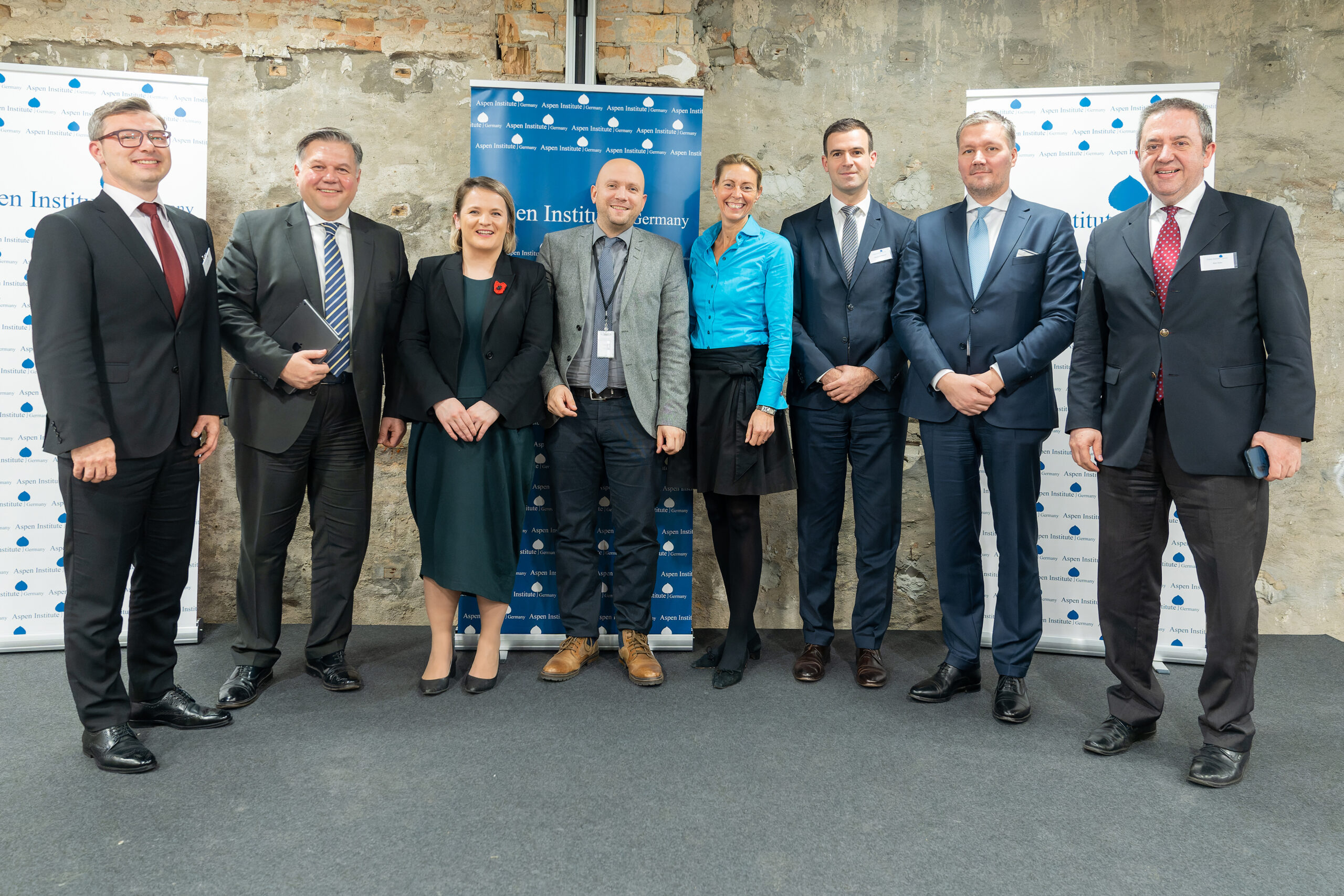- November 24, 2022
- -
- November 24, 2022

On November 24, 2022 the Aspen Institute Germany hosted a panel discussion titled “The EU’s Geopolitical Awakening – New Impetus for the EU Integration Process of the Western Balkans?” in conclusion of the 2022 Western Stakeholder Forum. Besides Manuel Sarrazin, the Federal Government Special Representative for the Countries of the Western Balkans, high-level representatives from the Western Balkans attended the event: Josip Brkić, Miroslav Gačević, Liza Gashi, Artur Kuko, Aleksandar Mašković, Filip Tosevski.
EU enlargement in the Western Balkans has been a strenuous process: Nearly twenty years after the Thessaloniki Agenda, the Western Balkans countries have made substantial progress, but EU accession to the EU has not yet been accomplished. The revised enlargement methodology adopted in 2020 did not provide the needed breakthrough, but in a cautious sign of progress, Albania and North Macedonia started accession negotiations in July after breaking a long stalemate caused by the bilateral dispute between North Macedonia and Bulgaria. This development fuels hopes that the enlargement impasse could be overcome, not least due to the changing geopolitical situation in Europe, which also saw the European Council add Ukraine and the Republic of Moldova to the list of candidate countries in June. These developments raise a series of questions: What effects does the war in Ukraine have on the EU integration processes of the WB6? Does the EU’s geopolitical “awakening” give new impetus to the EU integration process of the Western Balkans? Will the EU enlargement process change as a result of Ukraine and Moldova being granted candidate status? How can enlargement be re-energized within the EU and in the region?

